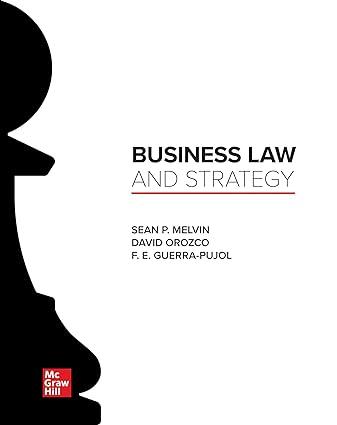The Stolen Valor Act of 2005 made it a federal crime for an individual to falsely claim
Question:
The Stolen Valor Act of 2005 made it a federal crime for an individual to falsely claim they had received military decoration or honors. The penalty for false claims about the Congressional Medal of Honor was enhanced to include up to one year in prison. The law was passed largely in response to media stories about public officials who had exaggerated or lied about their military record during their campaign or while in office. Alvarez was an individual who served as a board member of a municipal water district board in Claremont, California.
During one public meeting of the board, Alvarez introduced himself and mentioned facts about his past, including that he had served as a marine, was wounded, and had received the Congressional Medal of Honor. None of these representations were true. Alvarez was charged with violating the Stolen Valor Act and pleaded guilty, but he reserved the right to challenge the constitutionality of the law based on the First Amendment upon appeal. The U.S.
Court of Appeals for the Ninth Circuit struck the statute down as unconstitutional. The government appealed to the U.S. Supreme Court, arguing that because Alvarez’s statements were false, the speaker is not entitled to First Amendment protection.
CASE QUESTIONS 1. In what ways does this case illustrate the concepts of constitutional permanence and preemption?
2. Is the link between the statute and the government’s interest enough to satisfy any constitutional scrutiny? Why or why not?
3. Could Congress have crafted a different law that would have survived a constitutional challenge? How?
Step by Step Answer:

Business Law And Strategy
ISBN: 9780077614683
1st Edition
Authors: Sean Melvin, David Orozco, F E Guerra Pujol





